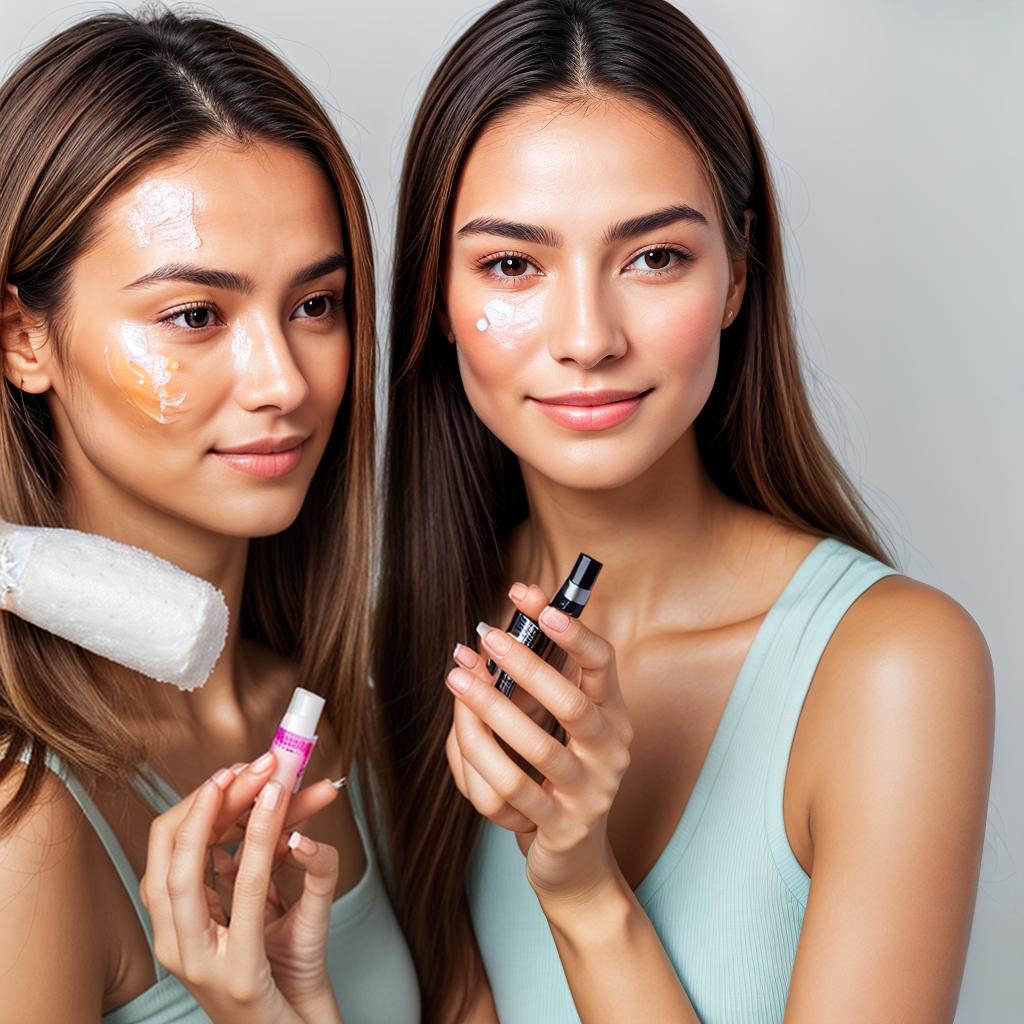Skincare is an essential part of our daily routine, and choosing the right products for your skin type and concerns is crucial for maintaining healthy and radiant skin. With the vast array of skincare products available in the market, it can be overwhelming to figure out which ones are best suited for your needs. In this comprehensive guide, we will walk you through the steps to help you make informed decisions when selecting skincare products.
Understanding Your Skin Type
Before diving into the world of skincare products, it’s important to understand your skin type. Skin types typically fall into five categories:
1. Normal Skin
Normal skin is well-balanced, neither too oily nor too dry. It has a smooth texture, small pores, and is generally free from major concerns.
2. Oily Skin
Oily skin tends to produce excess sebum, leading to a shiny complexion, enlarged pores, and a higher risk of acne and blackheads.
3. Dry Skin
Dry skin lacks moisture, often appearing flaky, rough, and feeling tight. It can be prone to redness and irritation.
4. Combination Skin
Combination skin exhibits characteristics of more than one skin type. Typically, it is oily in the T-zone (forehead, nose, and chin) and dry or normal on the cheeks.
5. Sensitive Skin
Sensitive skin is prone to redness, irritation, and reactions to certain ingredients or environmental factors. It requires gentle, fragrance-free products.
Identifying Your Skincare Concerns
In addition to your skin type, it’s important to identify any specific concerns or issues you want to address. Common skincare concerns include:
– Acne
– Aging (fine lines and wrinkles)
– Hyperpigmentation (dark spots)
– Dryness or dehydration
– Sensitivity or redness
Knowing your skin type and concerns will guide you in choosing the right products for your skincare routine.
Consult a Dermatologist
If you’re uncertain about your skin type or have specific skin issues that need professional attention, it’s advisable to consult a dermatologist. They can provide a personalized assessment and recommend suitable products or treatments tailored to your skin’s unique needs.

Ingredients Matter
When selecting skincare products, pay close attention to the ingredients. Here are some key ingredients to look for, depending on your skin type and concerns:
1. Hyaluronic Acid
Ideal for dry skin, hyaluronic acid is a hydrating powerhouse that can hold up to 1,000 times its weight in water, providing intense moisture.
2. Salicylic Acid
This beta-hydroxy acid is excellent for oily and acne-prone skin. It exfoliates pores, reduces inflammation, and helps clear breakouts.
3. Retinol
Retinol, a form of vitamin A, is a potent ingredient for addressing aging concerns. It stimulates collagen production and reduces the appearance of fine lines and wrinkles.
4. Vitamin C
Vitamin C is known for its brightening and antioxidant properties. It can help fade dark spots and protect your skin from free radical damage.
5. Niacinamide
Niacinamide is versatile and suitable for various skin types. It can reduce redness, control oil production, and improve the texture of your skin.
6. Soothing Ingredients
For sensitive skin, look for products containing soothing ingredients like aloe vera, chamomile, or colloidal oatmeal to calm and reduce irritation.
Patch Testing
Before applying a new product to your entire face, perform a patch test. Apply a small amount of the product to a discreet area of your skin, such as your inner forearm, and wait for 24-48 hours to see if any adverse reactions occur. If your skin reacts negatively, avoid using the product on your face.
Consider Your Skin’s Needs at Different Times
Your skin’s needs can change with the seasons and as you age. Be prepared to adjust your skincare routine accordingly. For example, you might need a heavier moisturizer in the winter to combat dryness or a lightweight, oil-free sunscreen in the summer to prevent breakouts.
Read Product Labels
Always read the product labels carefully. Look for key information such as the product’s purpose, instructions for use, and the complete list of ingredients. Avoid products with ingredients that you know irritate your skin or are not suitable for your skin type.
FAQs
Q1: How often should I change my skincare routine?
A1: You should assess your skincare routine periodically, especially if you notice changes in your skin’s condition or needs. However, it’s not necessary to change products frequently; consistency is often more beneficial for your skin.
Q2: Can I use multiple products with active ingredients in my routine?
A2: It’s possible to use multiple products with active ingredients in your routine, but be cautious not to overdo it. Introduce new products gradually, and pay attention to how your skin responds. Consult a dermatologist if you have concerns.
Q3: Is it essential to use a separate sunscreen if my moisturizer has SPF?
A3: Using a dedicated sunscreen is advisable, as it provides better protection against harmful UV rays. Many moisturizers with SPF may not offer adequate sun protection when used alone.
Q4: Can I skip moisturizer if I have oily skin?
A4: No, even oily skin needs hydration. Opt for a lightweight, oil-free moisturizer to keep your skin balanced and prevent it from producing excess oil.
Q5: How long does it take to see results from skincare products?
A5: The time it takes to see results can vary depending on the product and your specific concerns. Some products may show results in a few weeks, while others may take several months of consistent use.
Choosing the right skincare products for your skin type and concerns is a crucial step in achieving healthy and radiant skin. Understanding your skin’s needs, consulting a dermatologist if necessary, and carefully selecting products with suitable ingredients will help you achieve the best results. Remember that consistency is key, and be patient as you wait for your skincare products to work their magic.
